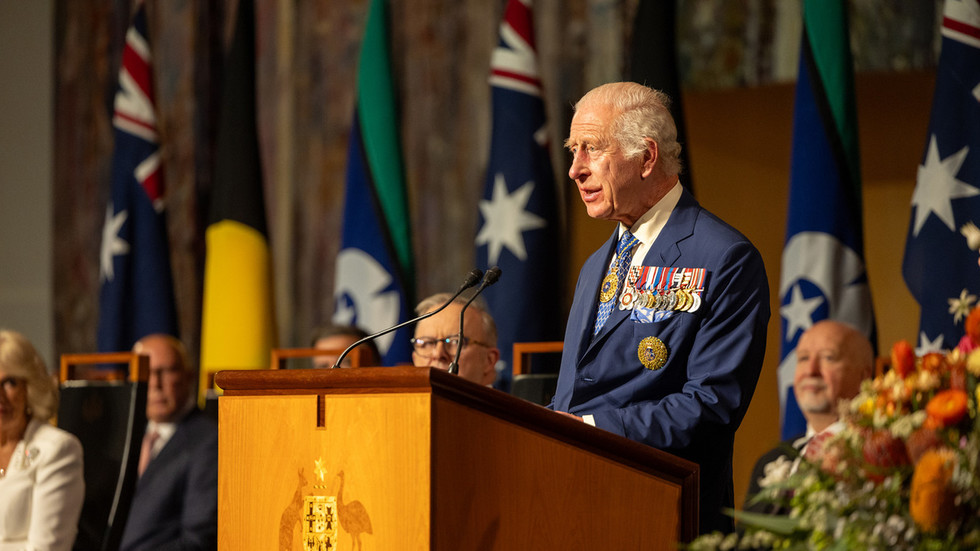Independent Senator Lidia Thorpe made headlines recently when she disrupted a reception for King Charles III and Queen Camilla at Parliament House in Canberra with an impassioned outburst. As the royal couple concluded their address, Thorpe confronted King Charles, forcefully accusing the monarchy of committing genocide against Indigenous Australians. She demanded restitution for what she described as the theft of land, bones, and the lives of her ancestors, calling for a treaty to be established between First Nations peoples and the Australian government. Her powerful statements echoed in the chamber, and she insisted, “This is not your land, you are not my king.” Security promptly escorted her from the hall amid her escalating protest, which included her declaration of disdain for the colonial legacy represented by the monarchy.
Prior to the reception, Thorpe participated in a protest outside the Australian War Memorial, coinciding with the royals’ visit. The protest aimed to spotlight the ongoing issues of justice and recognition for Indigenous Australians, including the historical traumas inflicted upon them through colonization. Thorpe reportedly had a minor confrontation with police during the demonstration, narrowly avoiding arrest. This series of events highlights her outspoken activism for Indigenous sovereignty and underscored the tensions that still exist in Australian society regarding the legacy of colonization.
Australian Prime Minister Anthony Albanese attempted to dispel the tense atmosphere by assuring the royal couple of the respect many Australians hold for them, stating, “Your majesties are very welcome here.” This response reflected the official diplomatic stance towards the monarchy, aiming to maintain a respectful environment during their visit. However, Thorpe’s actions starkly contrasted with the Prime Minister’s sentiments, emphasizing the divide between the government’s perspective and the feelings of Indigenous advocates regarding the monarchy’s historical role in their oppression.
Former Prime Minister Tony Abbott criticized Thorpe’s outburst as “unfortunate political exhibitionism,” reflecting a common criticism of activists who disrupt official proceedings. Abbott’s remarks underline an ongoing debate in Australia about the appropriateness and effectiveness of direct action in political discourse. Many see Thorpe’s confrontational style as a necessary call to accountability for historical injustices, while others view it as undermining the decorum expected during royal visits.
The historical context of Thorpe’s demands cannot be overlooked. According to the Australian Museum, colonization led to at least 270 massacres of Aboriginal Australians from the late 18th to early 20th century. This brutal campaign resulted in a drastic decline in the Indigenous population, dropping from an estimated 1-1.5 million people to less than 100,000 by the early 1900s. These statistics highlight the catastrophic impact of colonization, setting the stage for the ongoing discussions around reparations, treaties, and recognition of Indigenous rights in modern Australia.
In light of recent events, the conversation around establishing a treaty with First Nations peoples in Australia gains renewed urgency. As Thorpe emphasized, Australia remains one of the few Commonwealth nations yet to formalize such an agreement. The momentum for a national treaty resonates with broader movements for reconciliation, acknowledging past wrongs, and fostering a more equitable society. Thorpe’s vocalization of these issues serves not only as a personal testament to the pain of her community but also as a rallying call for systemic change, challenging both governmental and societal norms surrounding Indigenous rights and recognition.

